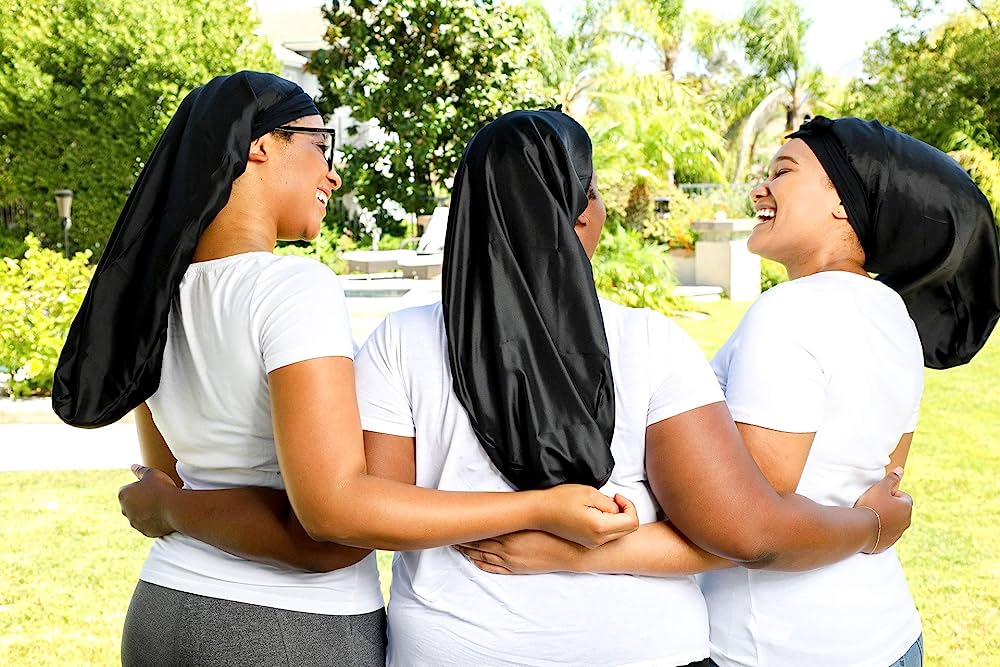If you walk into your bathroom right now, pick up your shampoo bottle, and start regarding the ingredients, would you have any idea what half of them are? Probably not. But don’t panic, it was like that for most of us. Mainstream products for curly, kinky, and coily hair haven’t been around for very long, which means the options are not only been slim but they’ve also been filled with a cast of ingredients that are nothing but villains to our delicate hair. So if you’re due for a shampoo refill, here are a few ingredients to watch out for.
Dimethicone
This fancy-sounding word is actually silicone, and you’ll find it in just about every anti-frizz serum or gel on the shelf. It does indeed work as an effective anti-frizz agent. The issue is that it coats the hair cuticle so effectively, that the nutrients and moisture your hair needs cannot enter through the shaft. So if you’ve been noticing your hair is looking less frizzy but duller after a shampoo, this is likely why.
Polyethylene Glycol
Ever bought a shampoo that helps with an oily scalp but notice after a while that you end up with dandruff or errant fungal infections you’ve never had before? Polyethylene glycol is a solvent that can be found in products around your house like oven cleaner! Yikes! It actually strips your scalp of its natural moisture, which in turn also strips each individual hair shaft of moisture. If it’s not typed out in full on the label, look for an ingredient called PEG.
Alcohol
Now we know alcohol in most of its forms is no good for our hair, of any texture, or curl type. Much like Polyethylene glycol, the roots and strands get stripped of all of their natural oils and moisture. The problem with this ingredient is that it can be difficult to find because of the various names it falls under. Look for things like SD alcohol 40, alcohol denatured, ethanol, and isopropyl and propyl.
Fragrance
No, there is nothing wrong with your shampoo smelling amazing, but most of these fragrances are unnatural and can be toxic when used over a long period of time, even in small doses. Opt for shampoos that use essential oils and non-toxic, natural aromatic ingredients.
Sodium Lauryl Sulfate
We’ve been conditioned to believe that the more lather we can whip up when we’re washing our hair, the cleaner it will be. In fact, we can be causing all kinds of damage. Sodium Lauryl Sulfate is an inexpensive foaming agent that you will find across the beauty industry. Sulfates are a sworn enemy of curly, coily, and kinky hair, so if you have anything at home that has that in it, it’s time to replace it. Sulfates strip the hair can force the curl to lose its shape and cause significant breakage.
Mineral Oil
You may be wondering why this ingredient makes the list - sounds harmless and wholesome right? Mineral oil is actually a petroleum byproduct, and it was largely found in conditioners and conditioning products. Its purpose was to act as grease and lubricate (not moisturize) the hair from root to tip. The issue is, much like dimethicone, mineral oil will simply seal the root and hair shaft, not allowing for natural oils to travel down the hair, nor will it allow much-needed nutrients to the scalp or rest of the hair.
The ultimate goal is to find a shampoo that is free of any harsh chemicals because the last thing your sensitive hair needs, especially if it’s damaged or processed, is to throw more unnatural ingredients at it. Just remember, sulfates are not our friends, mineral oil is a one-trick pony and if you want your shampoo to smell like heaven, make sure it’s done so with natural aromas and essential oils. Our absolute favorite is the Sugarcane & Almond Moisturizing Shampoo from Roseonna Naturals. Whichever shampoo you choose, make sure you follow up with a good deep conditioning treatment and apply the GLO Heat Cap for extra penetration of moisture.




